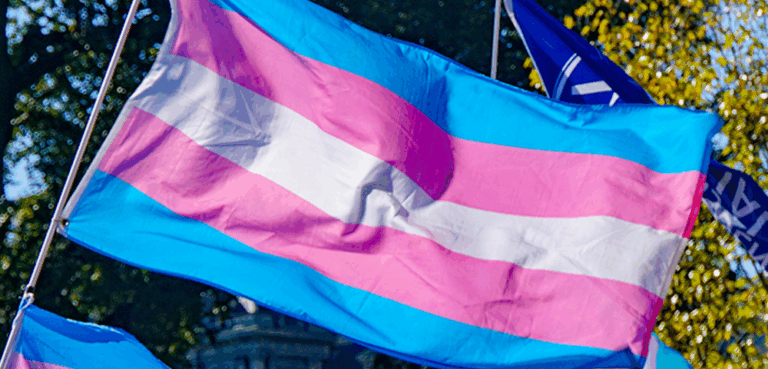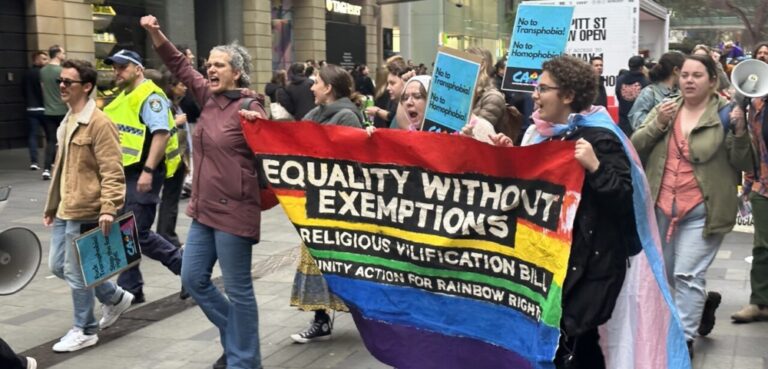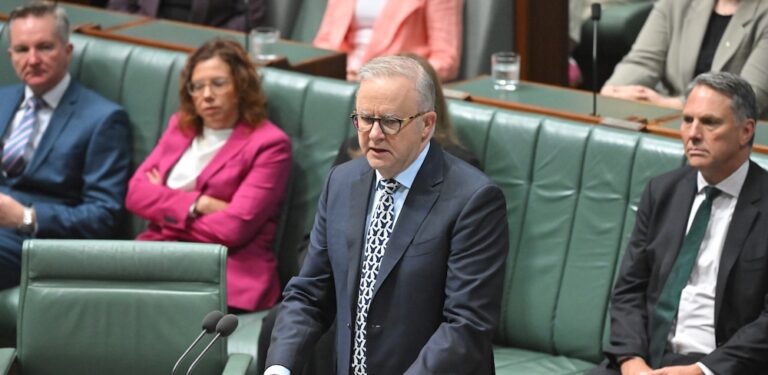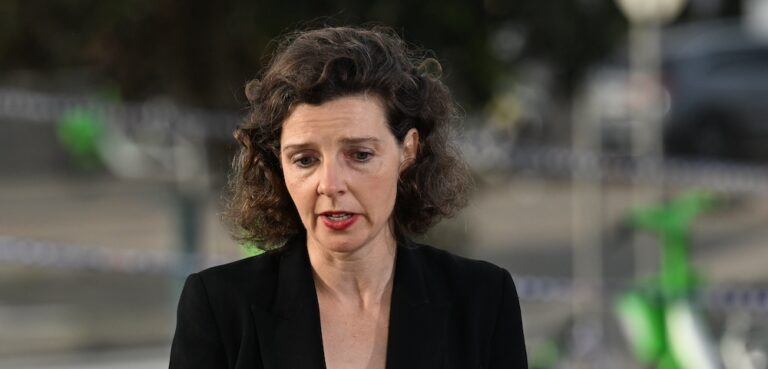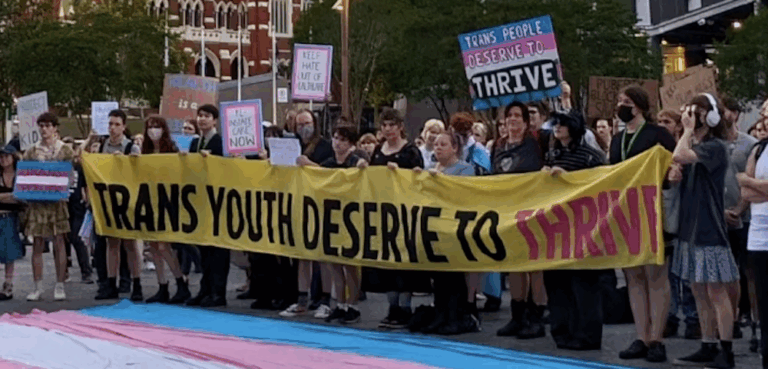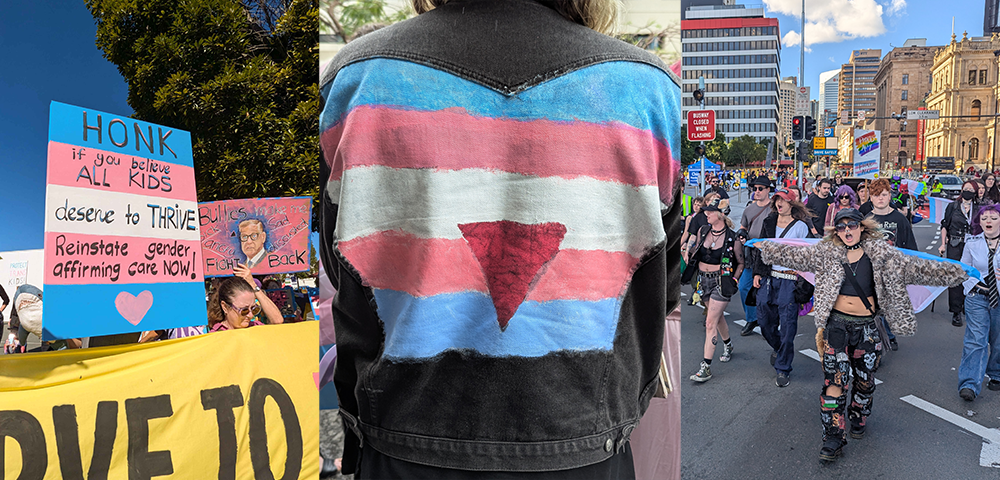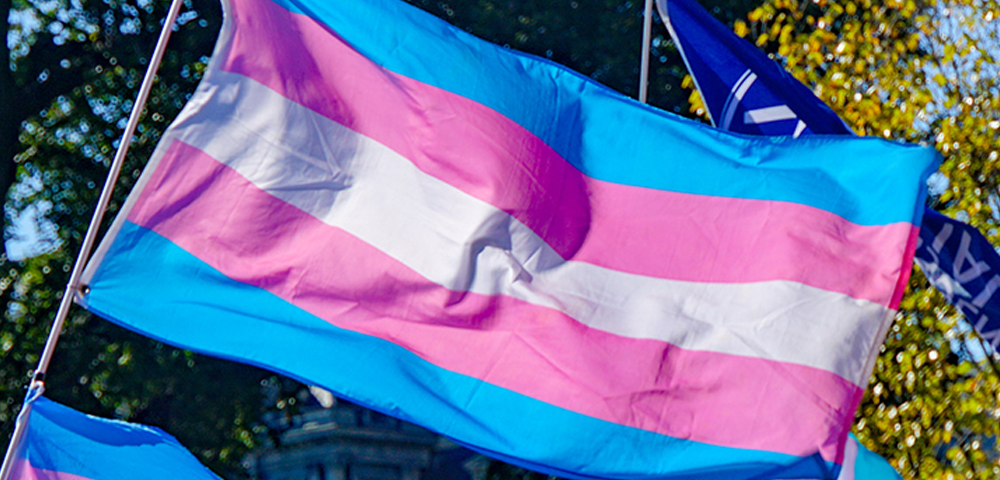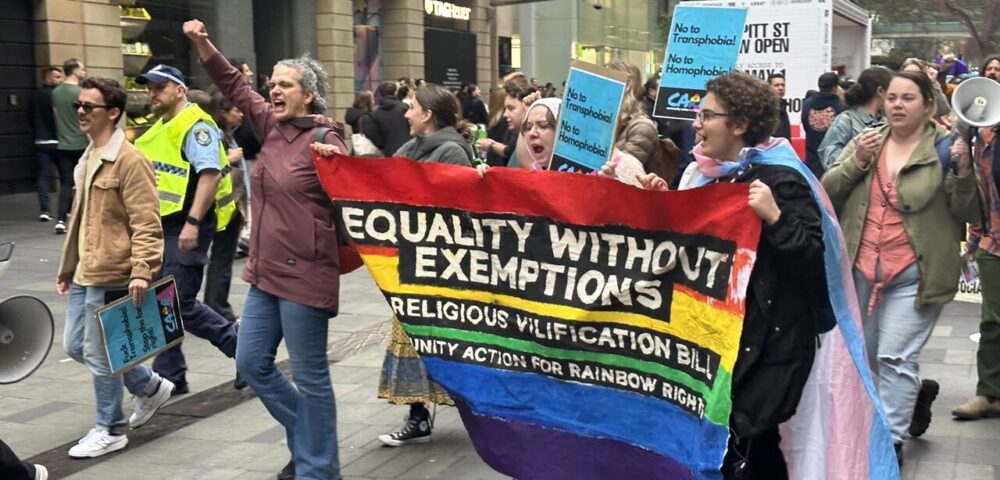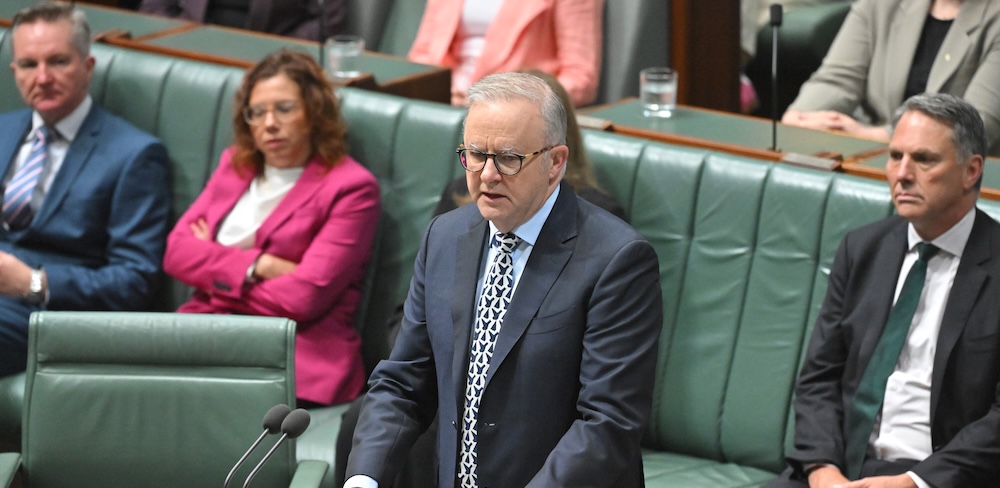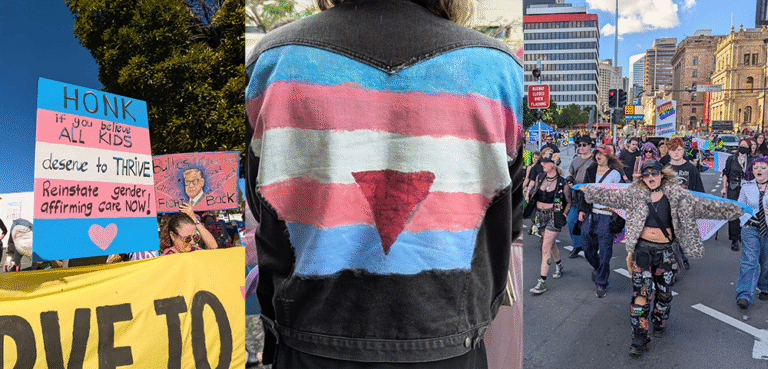
SA Govt Introduces Legislation That Completely Bans Conversion Practices
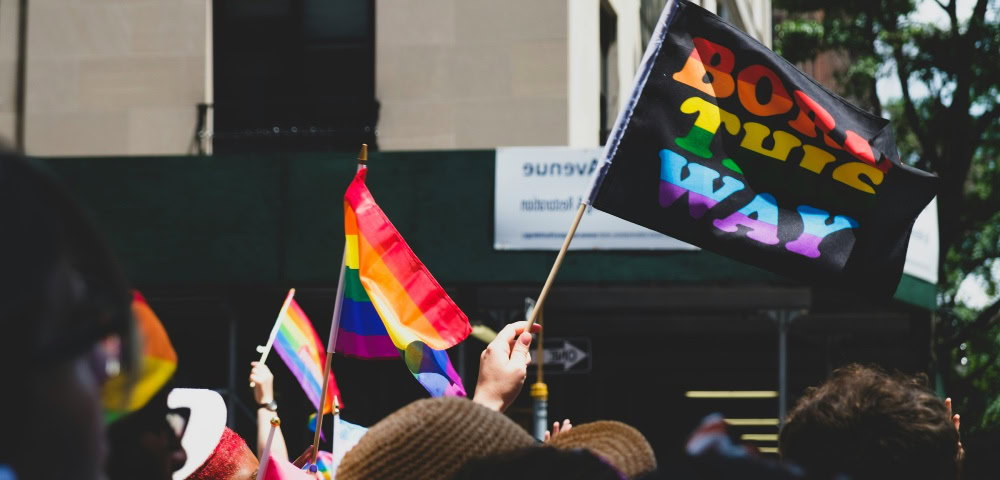
New legislation is being introduced in SA State Parliament that will completely outlaw conversion practices across the entire state of South Australia.
The SA government announced today it will be introducing a bill banning conversion practices in State Parliament this week.
Under the new legislation, the use of conversion practices, which allege to suppress, change or remove an LGBTQIA+ person’s sexual orientation or gender identity, will face severe penalties.
Perpetrators who cause serious harm to LGBTQIA+ people by conversion practices could receive up to five years in jail, and anyone who attempts to leave SA because of their use of conversion practices could face penalties like three years in jail and/or a $15,000 fine.
Survivors of harmful conversion practices will be able to lodge a complaint with the Equal Opportunity Commissioner, which will then be handled by the South Australian Civil and Administrative Tribunal.
SA Attorney-General: conversion therapy is “damaging” and “a form of abuse”
“The South Australian Government is sending a clear message to our LGBTIQ community – you are loved just the way you are,” said South Australia Attorney-General Kyam Maher.
“Supporters of this ugly practice call it ‘therapy’. The fact is, this act is a form of abuse. It is a damaging practice that seeks to force members of the LGBTIQ community to abandon who they are under the guise of ‘saving’ or ‘helping’ them.”
“I thank all those survivors, advocates and faith leaders who have engaged with the government on this issue over the past several years,” said Maher.
Advocates and survivors celebrate news of the conversion practice ban
LGBTQIA+ and survivor support organisations in South Australia, such as SA Rainbow Advocacy Alliance (SARAA), Ambassadors and Bridge Builders International (ABBI), The Brave Network, Sexual Orientation and Gender Identity Change Efforts (SOGICE) Survivors , Amnesty International, Equality Australia and many more have fought for the ban for many years.
Equality Australia CEO Anna Brown joined survivors and local advocates in Adelaide today to welcome the Bill, while cautioning that more needs to be done to ensure people are properly protected.
“We stand with survivors in welcoming this bill and we urge all parliamentarians to seize this chance to put an end to these damaging practices which have no place in modern Australia,” said Brown.
“We are not broken, disordered or in need of fixing, and we don’t need to be anything other than who we are.”
View this post on Instagram
Brown also noted that this bill is a good starting point, but there is still more work that needs to be done within the issue.
“This bill is a good starting point, but it ignores the fact that it can only take one event to cause pain that lasts a lifetime, while also expecting survivors to bear the burden of enforcing this ban alone,” she said.
“Too many people have had lives cut short because of the damage done to them by practices which have denied their humanity and violated their basic human rights.”
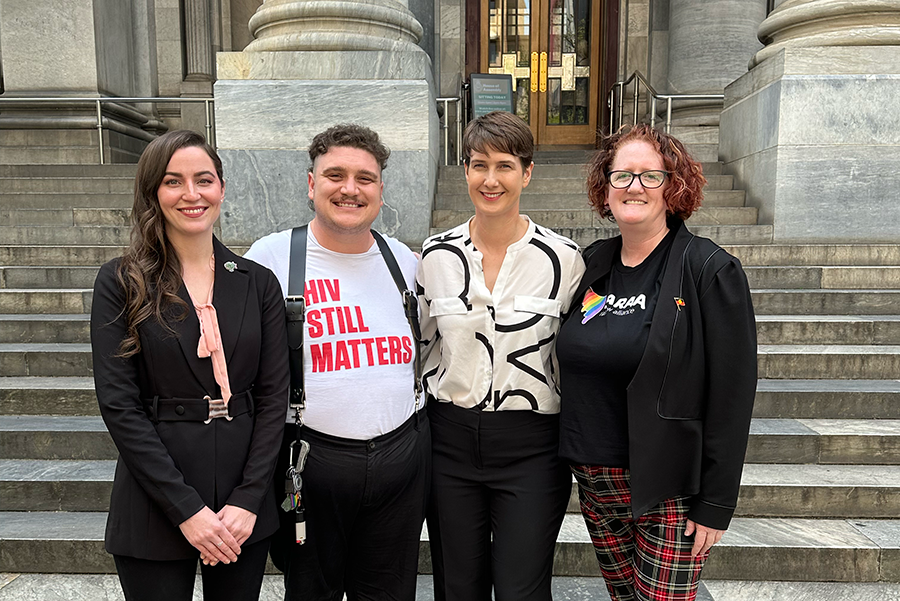
Conversion practice survivor advocate Jace Reh (second from left in above image) grew up in a small country town in South Australia, and shared their lived experiences and thoughts on today’s announcement with Star Observer.
“My experiences of change in suppression practices were surrounded by a fear of who I wanted to be and who I felt I had to be,” said Reh. “I would spend every week, prayed over multiple times a week, and reminded how I needed to maintain the image of a godly woman, that I had to be with a man and that I was the housewife.
“I was told that my true and authentic self was something to be afraid of that and that I was being called by the devil to do awful things.”
“Without this ban people like me will continue to hate themselves and feel like there’s something wrong with them,” continued Reh. “We are hopeful that the government will use extensive survivor led research and the expertise of survivor advocates like myself to make the required changes to ensure a truly protective legislation.”
Brown called on parliamentarians to pass the bill and work closely with survivors to ensure all LGBTQIA+ people are properly protected and supported, noting that SA has lagged behind other states when it comes to outlawing conversion practices.
Bans on conversion practices are already in place in New South Wales, Victoria, Queensland and the ACT.
What are conversion practices?
Conversion practices – previously commonly known as ‘conversion therapy’, but this term is now not preferred because these harmful, damaging practices are not ‘therapy’ or therapeutic in any way – are not as common in this day and age, but still exist.
The SARAA website describes conversion practices as the following:
Conversion practices (also know as “ex-gay” or “ex-trans” conversion “therapy”) seek to change or suppress a person’s sexual orientation, gender identity or gender and sexual expression. They are also sometimes referred to as Sexual Orientation or Gender Identity Change Efforts (SOGICE).
Conversion practices are underpinned by ideologies that view LGBTQIA+ people as broken and assert that LGBTQIA+ people can be “healed” to live ‘healthy heterosexual’ lives or with a gender identity consistent with their sex assigned at birth. They encourage us to live “sexually pure” lives through celibacy or abstinence and ultimately aim for LGBTQIA+ people to change their orientation, gender identity or de-transition.
Clinical or therapeutic formal methods of conversion practices such as conversion organisations, behavioural and psychoanalytic therapies and clinical interventions have now largely ceased after being denounced by numerous professional health and human rights bodies including the Australian Psychological Society and Australian Medical Association.
Yet conversion practices and ideologies are still perpetuated in informal community settings. These practices are often complex and nuanced practices that can range from subtle to overt and occur in a range of forms that can include:
- counselling in secular unregulated counselling services
- spiritual mentoring or pastoral care led by a person in power that regularly reflects conversion ideologies
- informal prayer between peers or support groups that reflect conversion ideologies
- sermons or textual studies that focus on “traditional gender roles” with the implication that variance from these roles indicates deviance or brokenness
- removal of the LGBTQIA+ person from leadership to encourage “personal development” in the area of their sexuality or gender
- disowning of the LGBTQIA+ person from their faith community and family until they express a change in orientation.
A 2018 joint report from the Australian Research Centre in Sex, Health and Society and the Human Rights Law Centre shared the voices and lived experiences of survivors of conversion practices.
It found that all participants shared the following experiences:
- Each person knew from an early age that they were same-sex attracted or transgender.
- Faith and service to their respective faith communities was at the centre of their lives during the period they were subject to gay conversion and related therapies.
- Each person carries deep grief, and, in some cases anger, over being told they were “broken” and needed fixing.
- All have experienced a profound sense of loss at the lives they had taken away from them.
More broadly, research shows that common experiences of survivors of conversion practices include: PTSD symptoms, mental health difficulties, increased likelihood of self-harm, suicidal ideation and attempts, difficulties forming relationships, sexual function difficulties, feelings of guilt and trauma, estrangement from family members and loved ones, moral injury or spiritual harm, and more.
The Preventing Harm, Promoting Justice report estimates up to 10% of LGBTQIA+ Australians are still vulnerable to harmful conversion therapy practices.
SARAA is “frequently contacted by members of our community who have experienced conversion practices in South Australia, predominantly in conservative religious settings”.
If you have experienced harm through conversion practices and need to speak to someone, people in South Australia can contact SARAA here, or if outside of SA, a similar local advocacy organisation that assists survivors of conversion practices.
If this story has caused you distress and you need to speak to someone immediately, you can call QLife on 1800 184 527 or webchat here.
